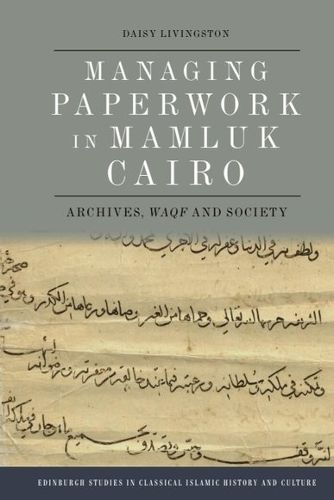Readings Newsletter
Become a Readings Member to make your shopping experience even easier.
Sign in or sign up for free!
You’re not far away from qualifying for FREE standard shipping within Australia
You’ve qualified for FREE standard shipping within Australia
The cart is loading…






Archives are not only sources for history but have their own histories too, which shape how historians can tell stories of the past. This book explores the archival history of one of the most powerful polities of the late-medieval Middle East: the 'Mamluk' sultanate of Cairo. Relying on surviving original documents, it focuses on archival practices connected to waqf, the pious endowments that became one of the characteristic features of late-medieval Islamic societies. By centring a close exploration of documents connected to processes of endowment and property exchange, this book sheds light on a startling culture of document accumulation that was shared by the diverse social groups involved in founding and managing endowments: sultans and emirs, qadis, legal notaries, and scribes. Emphasising the documents' life cycles from production, to preservation, to disposal and loss, it argues for the use of surviving documents to tell their own archival histories.
$9.00 standard shipping within Australia
FREE standard shipping within Australia for orders over $100.00
Express & International shipping calculated at checkout
Archives are not only sources for history but have their own histories too, which shape how historians can tell stories of the past. This book explores the archival history of one of the most powerful polities of the late-medieval Middle East: the 'Mamluk' sultanate of Cairo. Relying on surviving original documents, it focuses on archival practices connected to waqf, the pious endowments that became one of the characteristic features of late-medieval Islamic societies. By centring a close exploration of documents connected to processes of endowment and property exchange, this book sheds light on a startling culture of document accumulation that was shared by the diverse social groups involved in founding and managing endowments: sultans and emirs, qadis, legal notaries, and scribes. Emphasising the documents' life cycles from production, to preservation, to disposal and loss, it argues for the use of surviving documents to tell their own archival histories.